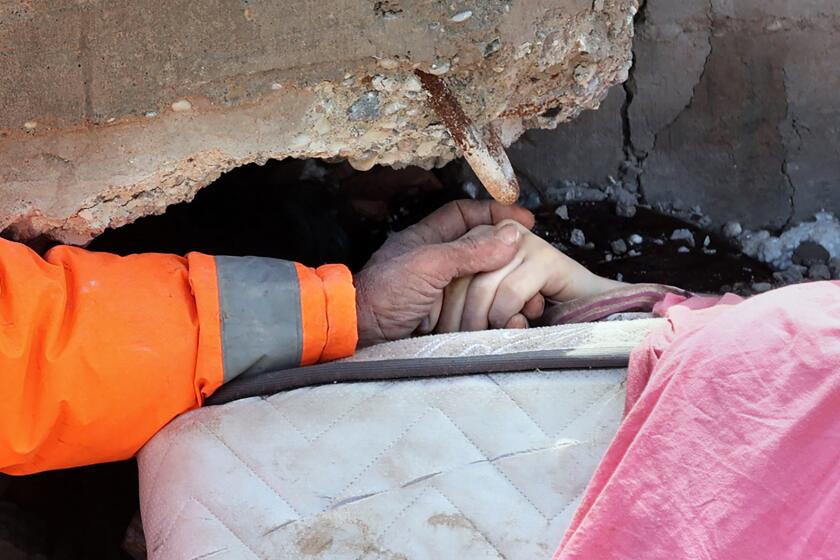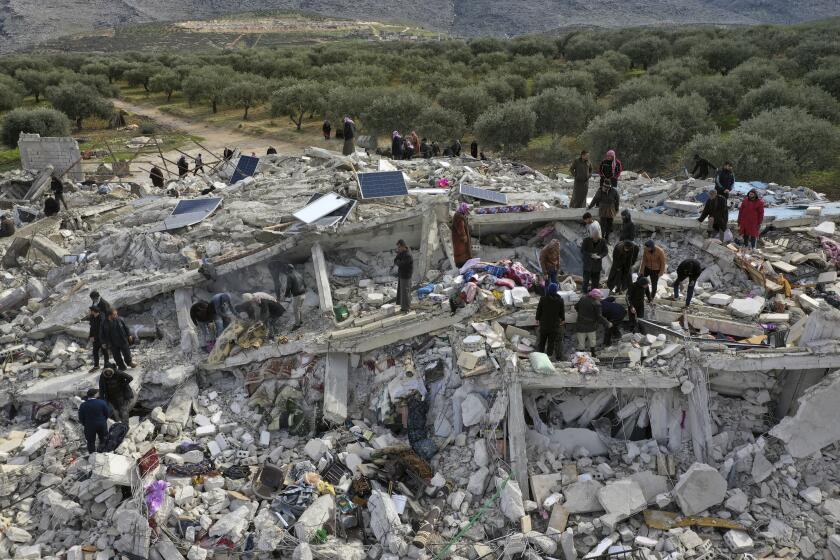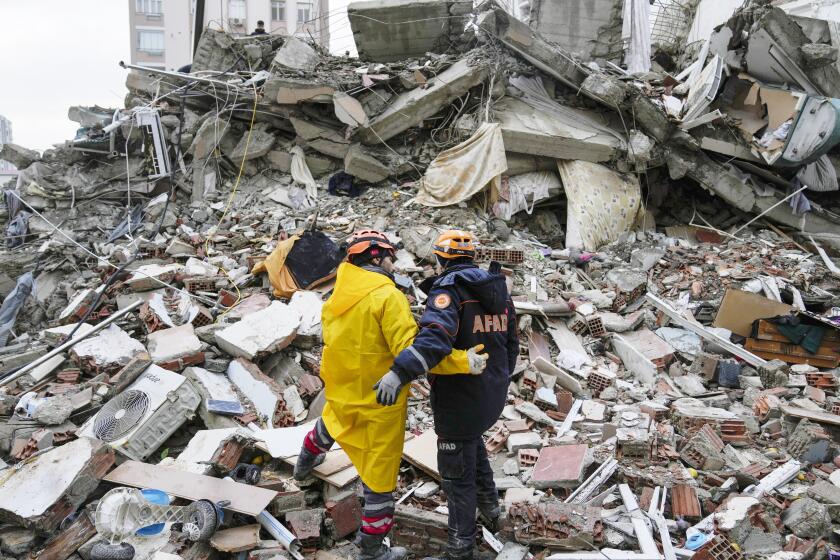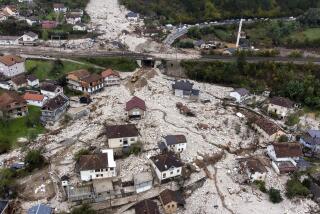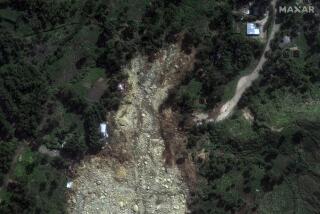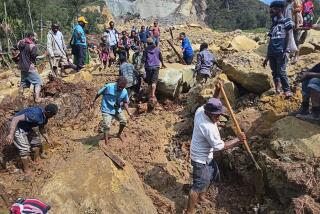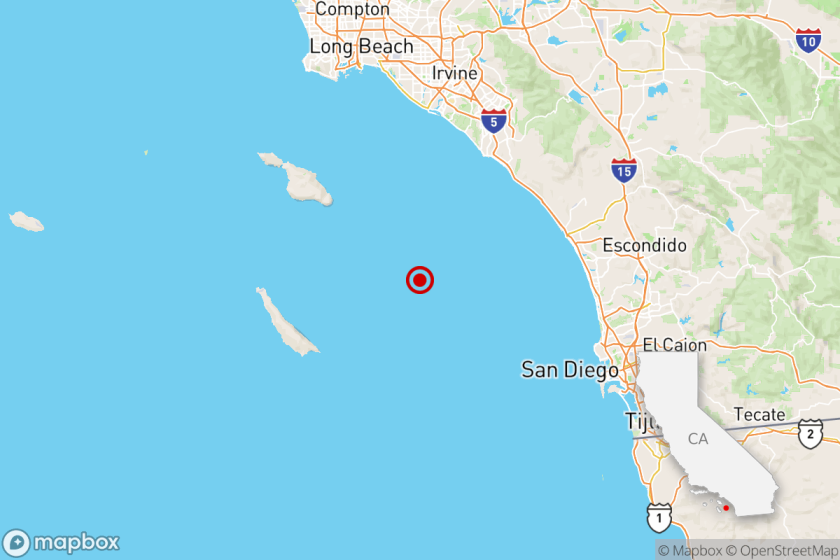Hopes of more survivors fading as quake death toll in Turkey and Syria exceeds 11,000
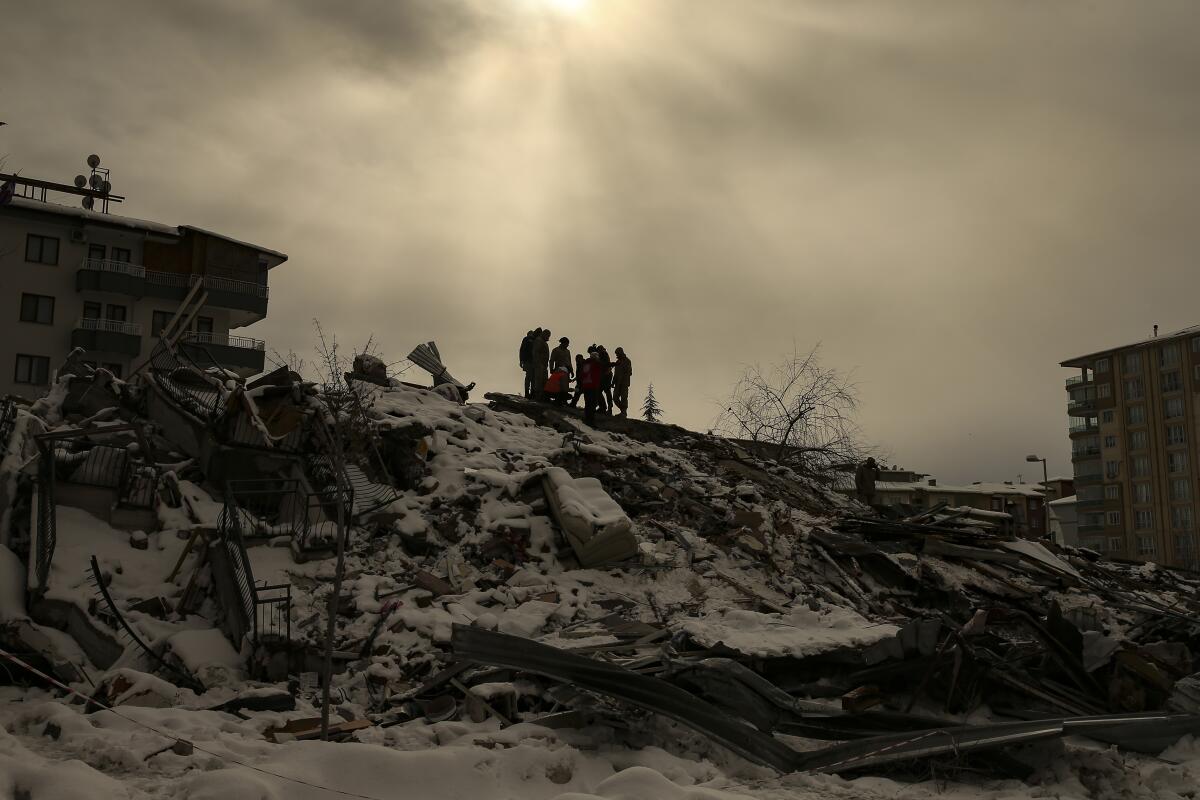
GAZIANTEP, Turkey — With hope of finding survivors fading, stretched rescue teams toiled through the night in Turkey and Syria, searching for signs of life in the rubble of thousands of buildings toppled by a catastrophic earthquake. The death toll rose Wednesday to more than 11,000, making it the world’s deadliest quake in more than a decade.
Amid calls for the Turkish government to send more help to the disaster zone, President Recep Tayyip Erdogan toured a “tent city” in Kahramanmaras where people forced from their homes are living. He acknowledged shortcomings early on in the government’s response to the disaster but vowed that no one would “be left in the streets.”
Search teams from more than two dozen countries have joined tens of thousands of local emergency personnel, and aid pledges have poured in from around the world. But the scale of destruction from the magnitude 7.8 quake and its powerful aftershocks was so immense — and spread so wide, including in areas isolated by Syria’s ongoing civil war — that many are still waiting for help.
Experts said the survival window for those trapped under the rubble of collapsed buildings or otherwise unable to access water, food, protection from the elements or medical attention was closing rapidly. At the same time, they said it was too soon to abandon hope for more rescues.
“The first 72 hours are considered to be critical as the condition of people trapped and injured can deteriorate quickly and become fatal if they are not rescued and given medical attention in time,” said Steven Godby, a natural hazards expert at Nottingham Trent University in England.
At times rescuers were using excavators; at other points they picked gingerly through debris to find survivors or the dead. With thousands of buildings toppled, it was not clear how many people might still be trapped underneath the rubble.
Turkey’s disaster management agency said recovered bodies that cannot be identified will be buried within five days. However, the agency said the bodies would be fingerprinted and photographed, and DNA from them would be collected, for possible identification in the future.
The move is in line with Muslim funeral rites, which require a burial to take place as quickly as possible after death.
The death toll is in the thousands after a magnitude 7.8 earthquake, followed by a magnitude 7.5 quake, struck southern Turkey.
In the Turkish city of Malatya, bodies were placed side by side on the ground, covered in blankets, while rescuers waited for funeral vehicles to pick them up, according to former journalist Ozel Pikal, who saw eight bodies pulled from the ruins of building.
Pikal, who took part in the rescue efforts, said he believes at least some of the victims may have frozen to death as temperatures dipped to 21 degrees.
“As of today there is no hope left in Malatya,” Pikal said by telephone. “No one is coming out alive from the rubble.”
There was a shortage of rescuers in the area he was in, and the cold hampered rescue efforts by volunteers and government teams, he said. Road closures and damage in the region have also impeded mobility and access.
“Our hands cannot pick up anything because of the cold,” Pikal said. “Work machines are needed.”
The region was already beset by more than a decade of civil war in Syria, which has displaced millions in that country and left them reliant on humanitarian aid and sent millions more to seek refuge in Turkey.
Turkey’s president said the country’s death toll had passed 8,500. The Syrian Health Ministry said the death toll in government-held areas had climbed past 1,200, while at least 1,400 people have died in the rebel-held northwest, according to volunteer first responders known as the White Helmets.
That brought the overall total to 11,000 since Monday’s earthquake, with tens of thousands of people injured.
That makes it the deadliest temblor since a 2011 earthquake in Japan triggered a tsunami, killing nearly 20,000 people.
Specially trained L.A. County firefighters make up one of two U.S. teams assisting in search-and-rescue operations in Turkey and Syria.
Syrian officials said the bodies of more than 100 Syrians who died during the earthquake in Turkey were brought back home for burial through the Bab al-Hawa border crossing. Mazen Alloush, an official on the Syrian side of the border, said 20 more bodies were on their way to the border, adding that all of them were Syrian refugees who had fled the war in their country.
More than two days after the quake, concerns grew for those still trapped, though stories of rescues gave many hope. A crying newborn still connected by the umbilical cord to her deceased mother was rescued in Syria on Monday. In Turkey’s Kahramanmaras, rescuers pulled a 3-year-old boy, Arif Kaan, from the rubble.
“For now, the name of hope in Kahramanmaras is Arif Kaan,” a Turkish television reporter proclaimed as the dramatic rescue was broadcast to the country.
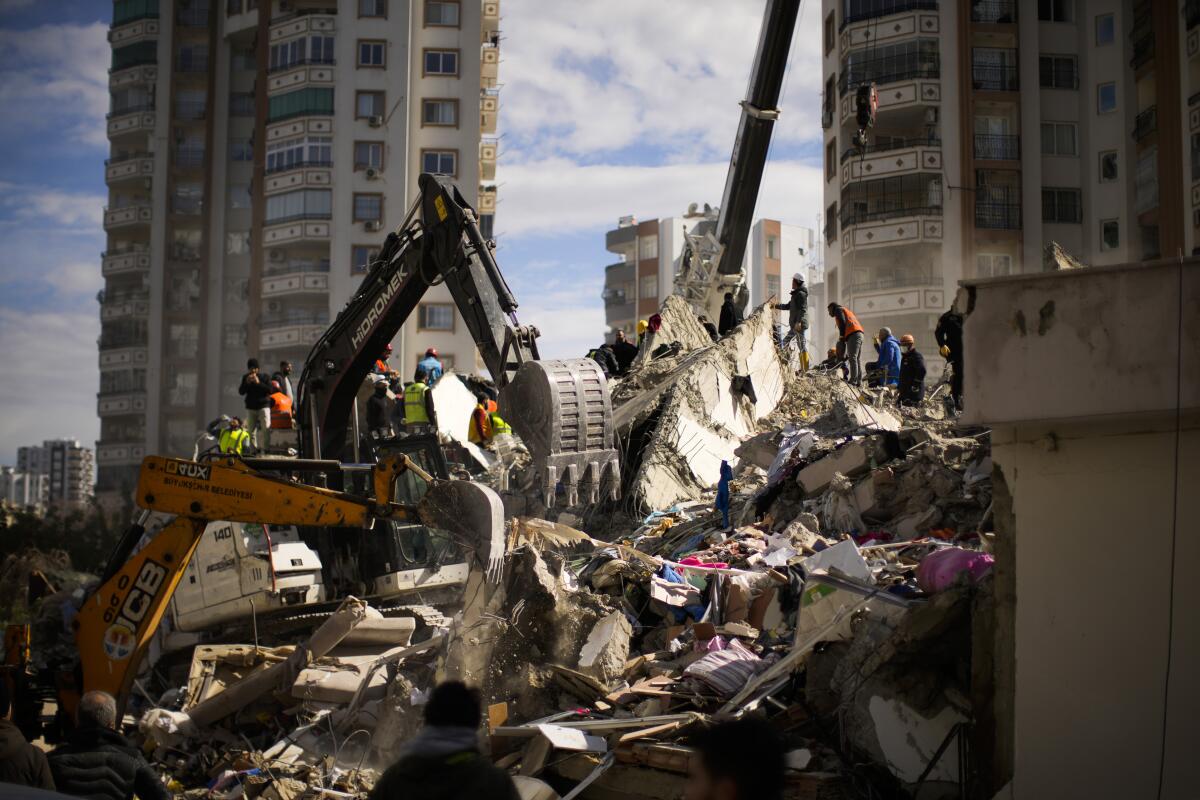
Polish rescuers told TVN24 that low temperatures were working against them, though two firefighters said the fact that people were in bed under warm covers when the predawn quake hit could help.
But David Alexander, a professor of emergency planning and management at University College London, said data from past earthquakes suggested that the likelihood of survival was now slim, particularly for individuals who suffered serious injuries or significant blood loss.
“Statistically, today is the day when we’re going to stop finding people,” he said. “That doesn’t mean we should stop searching.”
Alexander cautioned that the final death toll may not be known for weeks because of the sheer amount of rubble that needs to be sifted through.
The cold also made life miserable for those who lost their homes. Many survivors in Turkey have had to sleep in cars, outside or in government shelters.
“We don’t have a tent, we don’t have a heating stove, we don’t have anything. Our children are in bad shape. We are all getting wet under the rain and our kids are out in the cold,” Aysan Kurt, 27, said. “We did not die from hunger or the earthquake, but we will die freezing from the cold.”
Breaking News
Get breaking news, investigations, analysis and more signature journalism from the Los Angeles Times in your inbox.
You may occasionally receive promotional content from the Los Angeles Times.
Erdogan, on this tour of quake-hit areas, said that there were problems early on in the government’s quake response but that it had improved. He said the government would distribute 10,000 Turkish lira (about $532) to affected families.
The quake comes at a sensitive time for Erdogan, who faces presidential and parliamentary elections in May amid an economic downturn and high inflation. Perceptions that his government mismanaged the crisis could severely hurt his standings.
Kemal Kilicdaroglu, the leader of Turkey’s main opposition party, blamed the devastation on Erdogan’s two-decade rule, saying he had not prepared the country for a disaster and accusing him of misspending funds.
In Syria, aid efforts have been hampered by the ongoing war and the isolation of the rebel-held region along the border, which is surrounded by Russia-backed government forces. Syria itself is an international pariah under Western sanctions linked to the war.
The San Andreas fault is capable of magnitude 7.8 earthquakes. Two have occurred twice in recent times: the 1906 San Francisco earthquake and one in 1857 in Southern California.
The European Union said Wednesday that Syria had finally asked for humanitarian assistance to help quake victims. The EU said its sanctions against Damascus had no impact on the bloc’s ability to help.
Syrian Prime Minister Hussein Arnous visited neighborhoods in the northern city of Aleppo where buildings collapsed.
“Our priority now is to rescue the people who are still under the rubble,” he said.
In rebel-held parts of northwest Syria, rescuers pulled a man, a woman and four children from the rubble in the towns of Salqeen, Harem and Jinderis, according to the White Helmets group.
The region sits on top of major fault lines and is frequently shaken by earthquakes. Some 18,000 people were killed in similarly powerful earthquakes that hit northwest Turkey in 1999.
More to Read
Sign up for Essential California
The most important California stories and recommendations in your inbox every morning.
You may occasionally receive promotional content from the Los Angeles Times.
